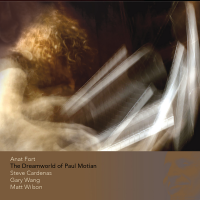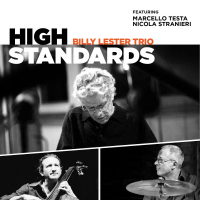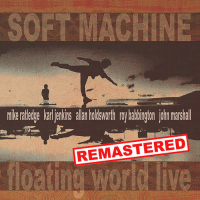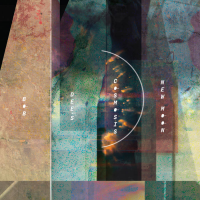Home » Jazz Articles » Album Review » JuJu: Message From Mozambique
JuJu: Message From Mozambique
Plunky Nkabinde
saxophone, tenor
Gil Scott-Heron
vocals1949 - 2011

Brian Jackson
pianob.1952
Nkabinde's primary influences were

Archie Shepp
saxophone, tenorb.1937

Pharoah Sanders
saxophone, tenor1940 - 2022

John Coltrane
saxophone1926 - 1967
Al-Hammel Rasul
piano
Lonnie Liston Smith
keyboardsb.1940
Message From Mozambique resonates strongly with Sanders' Karma (Impulse!, 1969) and Juan Les Pins Jazz Festival '68 (Hi Hat, 2018), reflecting both the tempered melodicism of (much of) the first and the paint-stripping intensity of (most of) the second. There are echoes, too, of Shepp's Attica Blues (Impulse!, 1972). While Message From Mozambique is an essentially instrumental album, its track titles—"Struggle (Home)," "Soledad Brothers," "Freedom Fighter," "Make Your Own Revolution Now"—are coming from the same place as Shepp's libretto. Late period Coltrane is behind it all, with a particularly clear connection to the long-form title track of Kulu SЁҰ Mama (Impulse!, 1967) featuring Sanders and conga player Juno Lewis.
Message From Mozambique can stand alongside each of the albums cited above without being found wanting. It really is that good. Check the YouTube clip below of "Struggle (Home)."
Postscript: The backstory of Message From Mozambique reads like something out of a contemporaneous blaxploitation movie...
Part One: 1970. Saxophonist James Branch leaves the US Army and relocates to San Francisco, where he becomes involved in the anti-Vietnam war and black nationalist movements. He ekes out a living playing in jazz bands, organ trios, R&B groups and avant-garde ensembles. Along the way, Branch meets a South African emigrant musician named Ndikho Xaba, who he comes to regard as a musical mentor and source of political wisdom. He joins Xaba's band, Ndikho & The Natives, which also includes future JuJu members Ron Martin (vibraphone) and Kent Parker (bass). At some point, reflecting their Afrocentric political awakening, Branch becomes Plunky Nkabinde, Martin becomes
Lon Moshe
vibraphoneKen Shabala
bassPart Two: 1971. Nkabinde, Moshe and Shabala are recruited as musicians for a stage production of playwright Marvin X's Resurrection Of The Dead, which explores the political and spiritual rebirth of African Americans. The band includes three other musicians who will change their names and become founder members of JuJu: pianist Rasul and percussionists

Babatunde Lea
percussionb.1948
Jalango Ngoma
percussion
Bill Summers
percussionb.1948

Herbie Hancock
pianob.1940
The rest of the story can be read in James "Plunky" Branch's Juju, Jazz Funk & Oneness (Coolgroove Press, 2015). Someone ought to buy the film rights and get busy. ">
Track Listing
Struggle (Home); Soledad Brothers; Freedom Fighter; Make Your Own Revolution Now; Father Is Back; Nairobi / Chants.
Personnel
Plunky Nkabinde
saxophone, tenorKen Shabala
bassLon Moshe
vibraphoneAl-Hammel Rasul
pianoBabatunde Lea
percussionJalango Ngoma
percussionAdditional Instrumentation
Plunky Nkabinde: tenor and soprano saxophone, vocals; Ken Shabala: bass, double bass, flute, vocals; Lon Moshe: flute, piccolo flute, vibraphone, vocals; Al-Hammel Rasul: piano, shekere, vocals; Babatunde Lea: congas, drums, percussion, vocals; Jalango Ngoma: timbales.
Album information
Title: Message From Mozambique | Year Released: 2023 | Record Label: Strut Records
Tags
Comments
PREVIOUS / NEXT
Support All About Jazz
 All About Jazz has been a pillar of jazz since 1995, championing it as an art form and, more importantly, supporting the musicians who make it. Our enduring commitment has made "AAJ" one of the most culturally important websites of its kind, read by hundreds of thousands of fans, musicians and industry figures every month.
All About Jazz has been a pillar of jazz since 1995, championing it as an art form and, more importantly, supporting the musicians who make it. Our enduring commitment has made "AAJ" one of the most culturally important websites of its kind, read by hundreds of thousands of fans, musicians and industry figures every month.







 Buy Now
Buy Now

















